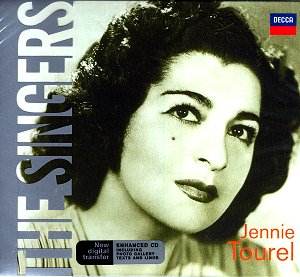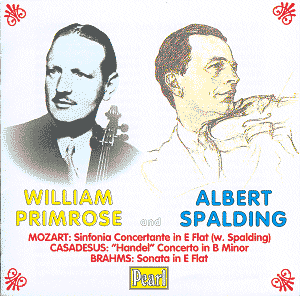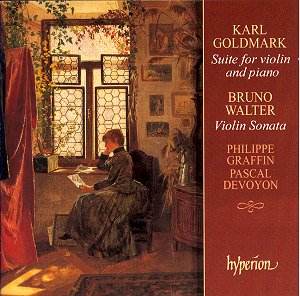 Composer: Jennie Tourel
Composer: Jennie Tourel
Works: Songs by Gluck, Rossini, Bizet, Rachmaninov, Tchaikovsky, Grechaninov, and others
Performers: Jennie Tourel (mezzo-soprano), Paul Ulanovsky & Brooks Smith (piano)
Recording: Rec. dates unknown, first released on Decca
Label: DECCA 467 907-2
The artistry of Jennie Tourel, a mezzo-soprano of remarkable versatility and emotional depth, finds a fitting showcase in this collection drawn from her earlier recordings, primarily from the mid-20th century. Hailing from a tumultuous historical background, Tourel’s career flourished in the context of a rapidly changing musical landscape—her early years in Russia, followed by her artistic maturation in France and the United States, reflect an intriguing confluence of cultural influences. This disc, part of Decca’s “The Singers” series, not only serves as a testament to her exceptional vocal gifts but also as a critical lens through which we may examine a pivotal era in vocal performance.
The selection of works covers a broad range of styles, from the buoyant melodies of Rossini to the rich emotional tapestries found in Rachmaninov and Tchaikovsky. The opening tracks featuring Rossini’s songs, previously unpublished and composed for the Venice Regata, showcase Tourel’s vibrant mezzo, characterized by a robust lower register and an agile upper range. Her phrasing reflects an innate understanding of the text, allowing the playful nature of the music to shine through. Particularly noteworthy is her interpretation of “La danza,” where the interplay of rhythm and lyricism is executed with vivacity and a sense of spontaneity that breathes life into the performance.
As the recording transitions to the second half, which delves into the Russian repertoire, the listener is treated to a marked shift in tonal color and emotional weight. Here, Tourel’s voice reveals its dramatic capabilities, particularly in selections by Rachmaninov and Grechaninov, where the textural depth of her singing becomes more pronounced. The nuances in her interpretation of Rachmaninov’s “Vocalise” exhibit a profound sensitivity, bringing forth a haunting beauty that resonates well beyond the notes. The accompaniment by Ulanovsky and Smith is exemplary, providing a sympathetic backdrop that enhances Tourel’s expressive capabilities without overshadowing her.
The sound quality of this recording merits attention as well. The forward placement of Tourel’s voice in the mix allows listeners to appreciate the clarity and richness of her tone, a testament to the engineering standards of the era juxtaposed with the forward-thinking production techniques employed by Decca. The mono tracks, while lacking the spatial depth of stereo, retain a warmth and presence that support the intimate nature of the recital format, effectively capturing the essence of live performance.
Comparatively, while contemporary recordings of artists like Olga Borodina provide a more robust connection to the dramatic operatic repertoire, Tourel’s legacy lies more within the realm of song and recital. This distinction is crucial; her artistry, though less frequently showcased in dramatic roles in modern media, possesses a compelling charm and authenticity that is both engaging and rare. The absence of extensive recordings in today’s catalog highlights the need for greater appreciation of her contributions, making this collection a valuable addition for both admirers of her work and newcomers alike.
As an artifact of vocal artistry, this disc encapsulates the essence of Jennie Tourel’s unique position in the pantheon of great singers. The rich cultural tapestry she weaves through her performances is matched by the technical prowess and emotional resonance she brings to each piece. This recording not only preserves her artistic legacy but also invites listeners to engage deeply with the subtleties of her interpretation, making it an enriching experience for anyone attuned to the nuances of classical vocal performance.



